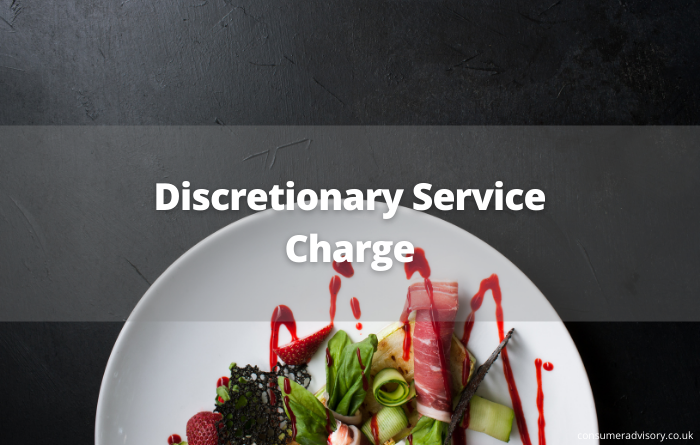
A discretionary service charge is a fee that you might see added to your bill when you dine in a restaurant. This money pays for the person that has served you and is typically awarded for good service. As this fee is discretionary, you can decide whether you want to pay it.
In this article, we’ll take a closer look at discretionary service charges, including how they differ from a tip and when you should and shouldn’t pay this charge.
Whether or not you can refuse to pay a service charge in a restaurant will depend on whether the charge is discretionary or compulsory. If the charge is compulsory, you should have been made aware of it before placing your order. If this was the case, you are obliged to pay the service charge, unless there was an issue with the service.
If the service charge is discretionary, this means that you can choose whether to pay the fee based on the service that you received. A restaurant should not force a customer to pay this charge unless they were made aware of a compulsory service charge before placing their order.

Many people mistakenly think that a service charge and a tip are the same thing. The truth is, these are different things and you need to be aware of the differences.
A tip is a voluntary payment awarded to the serving staff for good service. This is often made in cash, although some restaurants will also allow you to add a tip to a card payment when paying your bill.
A service charge is a fee to the restaurant to cover all aspects of your service including waiting staff, kitchen staff, breakages, etc. This fee is typically stated in your bill, so you will know exactly how much money the restaurant expects to receive.
If you didn’t like the service that you received and believe that it doesn’t warrant a discretionary service charge, then this is something that you can ask to be removed before paying your bill. As the word ‘discretionary’ means that you can choose whether to pay it, the restaurant cannot argue with your decision not to pay the discretionary service charge.
If you’d like the discretionary service charge to be removed from your bill, you can simply ask your waiter or waitress to remove it for you. If you have any problems, ask to speak to the manager and repeat your request. They may ask for feedback on your experience so that they can understand where improvements could be made to bring the service up to your expected standards.
There is often some debate around whether discretionary service charges are VAT taxable, and it is a difficult question.
The question as to whether a service charge is subject to VAT depends on whether it is an integral part of the service being provided. If the service charge is compulsory and is paid by every customer, VAT must be paid.
However, if a service charge is discretionary, meaning that customers have a genuine option whether or not to pay the charge, it falls out of the scope of VAT. This is because it is not considered an integral charge for the supply of the meal.
This is the case even if the customer pays the discretionary service charge in the same card payment as the rest of the bill. Providing the service charge is discretionary and is not compulsory, VAT does not need to be paid on this part of the bill.

Whether or not a service charge is paid to staff will depend on the individual restaurant. Whilst some restaurants will split the service charge between staff as a bonus on top of their standard wages, others will keep the service charge to cover any breakages or customers that leave without paying their bill.
If you’re wondering what happens to the service charge after you’ve paid, the best thing to do is to speak to the individual restaurant. They should be able to tell you what happens to the service charge after you’ve paid, including whether it is given to staff.
Alternatively, if you want to be sure that the money you give is going to the staff, leaving a tip instead of paying a service charge could be the best way to go. However, again it’s best to ask the individual restaurant for their policy to ensure that your money is going directly to the staff rather than the business.
If you eat at a restaurant and a service charge is not added to your bill, you might decide that you want to reward good service by leaving the serving staff a tip. Whilst this is not a requirement, many customers do choose to do so if the service has met or exceeded their expectations.
The average tip left by customers at a restaurant for good service is usually 10% of the total bill. However, if you feel that you have received exceptional service and want to leave a larger tip for the serving staff, it is up to you how much you give.
You can either choose to leave a tip in cash, or ask for the tip to be added to your bill when you pay by card.
Whether you choose to pay a discretionary service charge is ultimately your choice. However, if you feel that the service you’ve received is not deserving of this fee, then it is your right to refuse to pay it.
However, if you choose not to pay the service charge and wish to provide feedback on your experience, this is something that the restaurant will be very interested in hearing. By giving them constructive feedback, they can hopefully resolve any problems for future customers and improve their service.
Copyright © 2025 Consumer Advisory. All rights reserved.